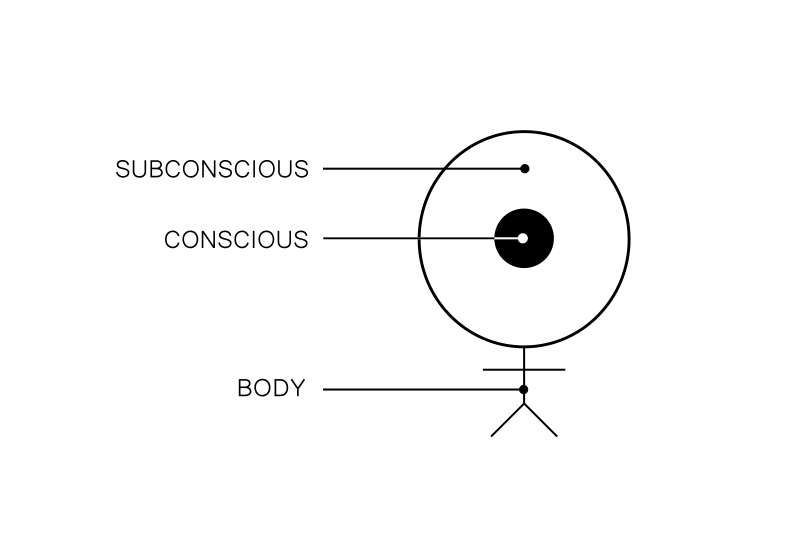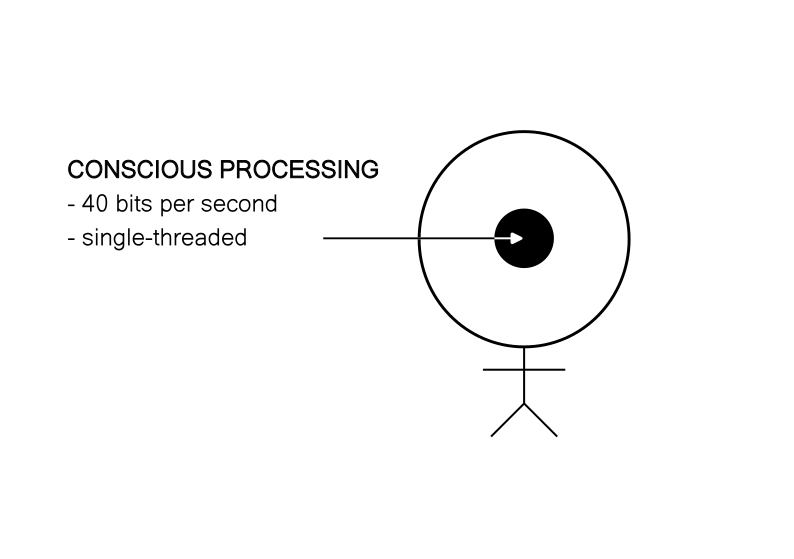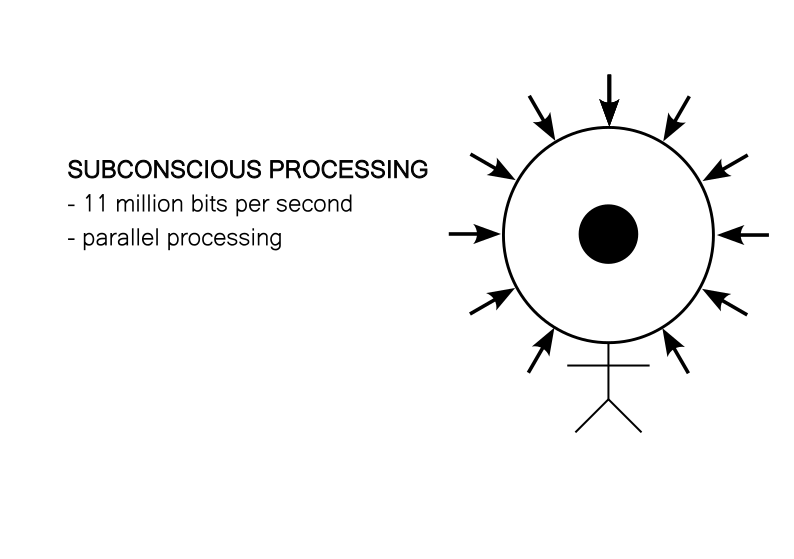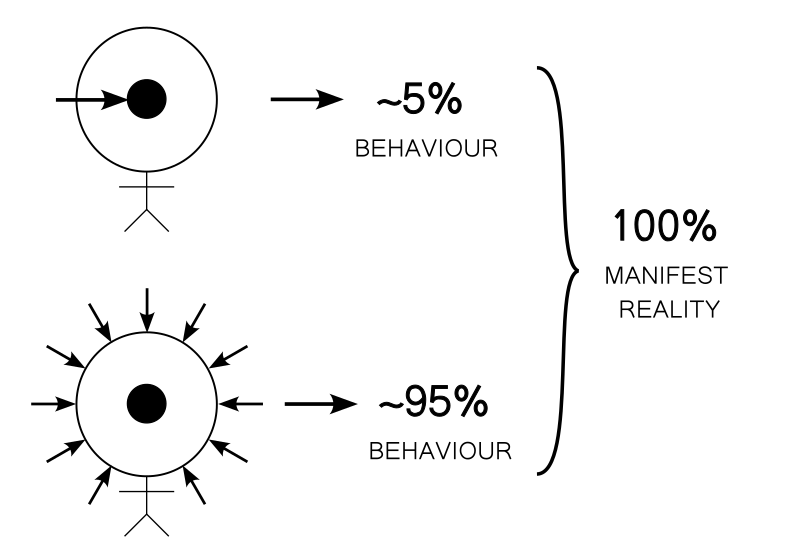Do you really know who you are?
You want to drink and you don't.
What's all that about? It's because there's more to you than just you.
For the sake of simplicity—and to provide us with a useful model of our behaviour—we will break down "you" into three components: the conscious mind, the subconscious mind, and the body. Together, these three elements are experiencing and engaging in the addictive behaviour while simultaneously trying to find a way out.

Let’s take a look at each of these and see what role they play.
THE BODY
The simplest to describe is the body. Essentially, it's just a passive instrument—a dumb terminal. It acts as a vessel, carrying out the commands of the two minds. In the context of addictive behaviour, it's like the minion of the two minds, running errands such as fetching another bottle of wine before the store shuts; the same drive to head to the gym at the start of the day is mysteriously absent. From the body's perspective, one of these choices leads to a dreadful hangover, regret, an empty wallet, and a shell of a person. The other promises a rush of endorphins and a healthier, stronger version of itself. This is not to say that the body doesn’t have huge importance in recovery, just that working with the body is generally downstream of the two minds. Improving the health of the body does, however, feed back into the health of the minds.
CONSCIOUS MIND
The conscious mind is the one through which you are currently perceiving these words. It's the ego—the one you use to reason with. It's the voice in your head that says, "I'm never drinking again." It handles basic arithmetic tasks, such as 2+2. If you think to yourself "scratch my nose," your body gets to work and makes it happen. The conscious mind is profoundly useful, but it doesn't encompass your entire being. Rather, you should view it as a tool for specific functions and tasks, not the go-to for solving long-term behavioural patterns. In reality, it influences only about 5% of behaviour. That’s not a lot considering how many people identify solely with their conscious mind.
As the rational component of the two minds, it recognizes (rationally) that your behaviour is out of control. But the conscious mind operates solely on what it has encountered in the past and present. It can only make decisions based on what it knows and has experienced. This is a crucial point because when you're trying to stop drinking, and you aren’t using a holistic strategy, you're basically asking your conscious mind to do something totally new, something it's never done before nor knows anything about.

SUBCONSCIOUS MIND
The subconscious mind is a fundamentally distinct entity. And it’s a big one. It’s the majority shareholder in your decisions and behaviour. It's responsible for involuntary actions like regulating your heartbeat, blinking, breathing, and generally keeping you alive and safe from danger. Continuously active, it operates beyond the conscious mind's awareness and drives approximately 95% of your behaviour. It likes to operate in the familiar, favouring what it knows to be safe and comfortable. Unfortunately, for you, what it knows to be safe and comfortable is alcohol dependency and its accompanying experiences.
So how did it come to the conclusion that this addictive behaviour is a smart thing to do? In one word: environment. Because the subconscious is inherently fixated on safety, whilst also being deeply social in nature, it perceives safety as alignment with the larger social group or herd. The subconscious constantly scans its environment with a bandwidth much, much wider than that of the conscious mind. It then tallies the most repetitive, familiar content in its surroundings and then aligns with it.

Utilizing the vast amount of information it consumes, the subconscious mind functions as a scale, weighing all environmental content and steering you towards the most repetitive patterns. Consider all the nights out, visits to pubs, weddings, parties, festive occasions like Christmas, Friday nights, weekends, drinks at sporting events, concerts, and more. Collectively, these experiences carry a huge amount of weight, all of which strengthen the subconscious mind's resolve to perpetuate the very same behaviours. Trying to override such deeply ingrained programming with only conscious intention is futile in the long run. Eventually, the subconscious mind exerts its influence and floats a thought into the conscious mind, such as "just one won't hurt." The conscious mind perceives and rationalises it as its own idea, and then the body acts it out as a behaviour.

What we need to do to change all of this is not just for the conscious mind to make the decision to stop; we need to use the conscious mind to grasp these dynamics and then collaborate with the subconscious. By capitalizing on the strengths of each, and working around their shortcomings, we can develop a more effective strategy for altering behaviour.
So, that's basically you in a nutshell. And for now that's all...
But before I go, remember: working on sobriety is an iterative process. We never fail, only learn. Be kind to yourself and never give up.
Marky
#sobriety #sober #getsober #sobercoach #sobercoaching #sobrietycoach #sobrietycoaching #quitbooze #quitdrinking #stopdrinking #alcohol #alcoholfree #getsober07 #dopamine
